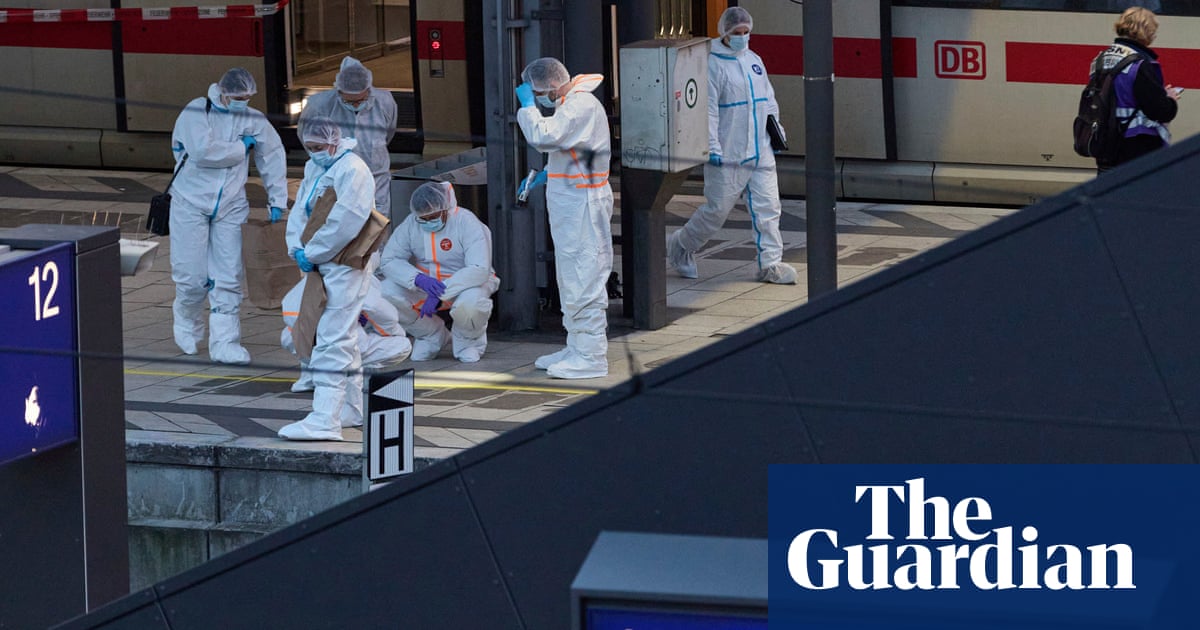A 19-year-old Syrian refugee inGermanyhas been hailed as a hero after he pinned down an assailant at Hamburg’s main railway station, helping to halt an attack in which 18 people were injured.
Police on Friday said a 39-year-old German womanhad been arrestedat the scene of the attack and that she was believed to be in a state of psychological distress. The 18 people injured were later reported toall be in stable condition,while the womanwas placed in psychiatric care.
As the city reeled from the incident, the spotlight landed on Muhammad Al Muhammad, who had been heading to his home in Buchholz, 25km from Hamburg, after visiting a friend in the city. He was waiting on the platform for his train when he spotted a woman wielding a knife.
He watched as people began running away from the woman. “I decided to run in the other direction and stop the woman,” he told theGerman news magazine Der Spiegel.
As he made his way, he saw another man, whom he described as Chechen, kick the woman in the knee, causing her to fall to the ground. “I held her [down] and pressed her hands against her rucksack so she couldn’t get up,” he said. “The woman didn’t scream, she didn’t resist.”
Police arrived a few moments later. As they pointed their weapons towards them, Muhammad moved away from the woman slowly, his hands raised in the air.
Der Spiegel, which said it had verified Muhammad’s identity, noted that the actions of the two men had probably prevented more people from being injured.
News of their interventions soon began to make waves across Germany, with some contrasting it to the sustained efforts by the far-right, anti-immigrant party Alternative für Deutschland, to link migration to crime, even as a recent study by the Munich-based Ifo Institutefound therewas “no correlation” between migration and higher crime rates.
Many in German media have seemingly also echoed this association; a2023 analysisfound that both print and television media reported five times more on violent crimes when the suspect was a foreigner in Germany, the broadcaster Deutsche Wellenoted recently.
Against this backdrop, it was crucial to share the story of Muhammad, who is originally from near Aleppo and arrived in Germany as a refugee in 2022, the journalist and political commentatorGilda Sahebi wrotein Germany’sDie Tageszeitung newspaper.
“One is tempted to say: ‘See? An Arab – his name is Muhammad, no less – is a hero!’” Sahebi wrote. “The political and public debate is now so dripping with racist toxicity, spread by a far-right party and its influencers in media and social media, but also by democratic political and media actors, that it is necessary to tell the story of Muhammad Al Muhammad.”
Muhammad said that, following the attack, he had been questioned by police before eventually making his way home. “The police thanked me and bought me a cappuccino,” he said. “That made me very happy.”
